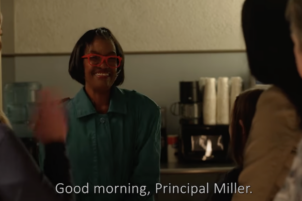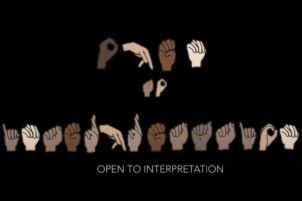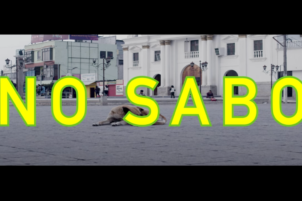Washington, D.C., August 16 – Opening in more than a dozen additional locations this weekend, The Peanut Butter Falcon is pulling in audiences from varied backgrounds. Centered on a marginalized character – Zak (Zack Gottsagen), who has Down syndrome – this film normalizes Zak and his journey precisely because it is presented as a universal dilemma. Zak wants what many others his age want – a chance at pursuing his dreams and independence.
The Drive for Independence
The Peanut Butter Falcon, which premiered at SXSW, is an example of a film providing cultural relevance on issues important to the disability community – and providing the opportunity to create wide-reaching impact. In the beginning of the film, Zak has been living in a residential nursing home for the past two-and-a-half years – a 22-year-old with roommates and friends four times his age.
This is not fiction – currently disability advocates are fighting for the right of people with disabilities to live within the community. The Disability Integration Act (DIA), a bill introduced by Sen. Chuck Schumer (D-NY) and Rep. Jim Sensenbrenner (R-WI), would require private health insurance to cover long-term care, such as in-home nursing care and personal care attendants for people with disabilities. Many people with disabilities require assistance with activities of daily living such as showering, toileting and dressing. Long-term care coverage permits them to live independently in their own communities.
A modern story reminiscent of Huckleberry Finn, The Peanut Butter Falcon tells the story of Zak, who escapes from the living care facility in just his underwear to pursue his dream of being a wrestler. On his journey to a wrestling school, Zak finds an unlikely source of help in Tyler (Shia LaBeouf), a small-time outlaw on the run. Tyler becomes Zak’s coach and ally – while Zak also helps Tyler come to terms with personal matters that have been haunting him.
Authentic Representation
According to a recent report by The Media, Diversity, & Social Change (MDSC) Initiative at USC’s Annenberg School for Communication and Journalism, only 2.5 percent of all speaking or named characters in the 100 most popular films of 2017 were shown to have a disability.
This film set out to buck that trend, as Michael Schwartz and Tyler Nilson wrote the film with Gottsagen in mind from the beginning, after meeting him at Zeno Mountain Farm, a disability media company and recreational camp. They even wrote the plot with Gottsagen’s interests in mind, like wrestling. However, they did not set out to write a “disability film.”
“We really just wanted to tell a story with Zack,” Schwartz said, noting the pair did not think about Gottsagen’s disability too much.
“To come out and be this voice for disabilities certainly wasn’t my intention,” Nilson added. “It was really to make a movie with Zack, and I think I had just seen people maybe not treat him as an equal and think injustice really chaps my butt… I don’t think it was until really recently I started to see that this this stone we threw in the pond – the ripple effect is maybe something that I was unaware of.”
“Our film’s not a message film but it’s not not a message film,” he added.
Schwartz and Nilson were pressured at first to hire an actor without Down syndrome to play Zak’s role but ultimately prevailed in their desire to cast Gottsagen. The team created a proof of concept with Gottsagen, showing potential studios that Gottsagen is extremely capable and talented.
“We turned out a couple million dollars to do it with a movie star in that role,” Schwartz explained. “It was a big deal for us, we didn’t have any money.”
“We were broke, living in a tent in the woods,” Nilson added. “We had made a promise to Zack. I made a promise to Mike that we were going to make this movie ride or die. I don’t break my promises and I don’t break my promises to Zack and Mike. These are my best friends and I’m not going to say I’ll do something and then not do something and so it was interesting but like all right you’re also having a baby you know a few months later and I thought this movie would take us two months to make. I didn’t know it would take us longer and then finances come and all of a sudden you have to figure out a way to save a couple grand a month and then the best option there was to live in the woods in a tent so we lived in that tent for like a year.”
Tackling Stigma
The film includes scenes with Zak being called a “retard,” a derogatory term no longer accepted in society – but nonetheless still used by some people today – and authentic to Zack’s experience. The film shows how hurtful this term can be and serves as indirect teaching tool to not use it.
Even more importantly, it puts the spotlight on another aspect of ableism. Tyler points out how Eleanor (Dakota Johnson), a compassionate nurse, is inadvertently treating Zak poorly by babying him.
“You might not be saying the word, ‘retard,’ I’ll give you that,” says Tyler, “but you damn sure is making him feel retarded. That ain’t going to help his life.”
“There’s the coddling that happens and I think you know in our community that’s as off-putting as using derogatory language so we kind of wrote a scene around it,” Schwartz noted. “They’re both sort of wrong to begin with and learning from each other.”
“You go to a gas station and people are talking to you slower because they don’t think you can understand English,” Nilson added. “What are you doing, you’re not saying that word but you’re kind of saying that word. You’re treating him in a way that’s like a certain – we all know the way.”
A Lifetime of Preparation
Gottsagen, who was raised by a single mother, grew up in the opposite scenario – his mother had high expectations for his son and helped him live his life as such. When doctors told his mother that he would be better off institutionalized and that he would be a total vegetation, she responded, “That’s great. I’m a vegetarian.” He went on to become the first student in Palm Beach County School District in Florida with Down syndrome to be fully included.
He and his mother filed several law suits relating the Americans with Disabilities Act (ADA), which was passed when Gottsagen was a young boy. They fought for his right to remain in Little League after the league tried to throw him out when they realized he had Down syndrome. And they fought once again when Gottsagen applied to a school known for its performing arts. The school said outright that they do not take kids with disabilities, something that was challenged and then forcefully changed.
A New Adventure
The film was created on a low budget but the audience would not be able to tell while watching. Schwartz and Nilson did not have a film background going into this production.
“We went to a library and checked out like how to write a movie, and put them into that narrative structure,” Schwartz said.
“That’s what happened, it’s true,” Nilson added. “I got a library card and some late fees actually.”
Beginning August 16, the adventure is reaching new cities! Ticketing is now live on The Peanut Butter Falcon official website: http://www.thepeanutbutterfalconmovie.com. The Peanut Butter Falcon will be in additional locations beginning August 23.







